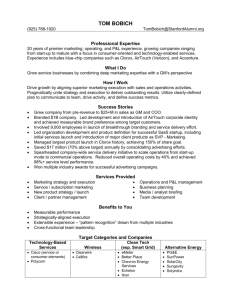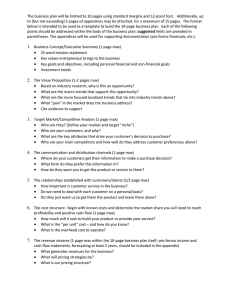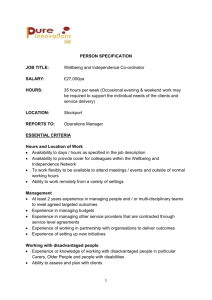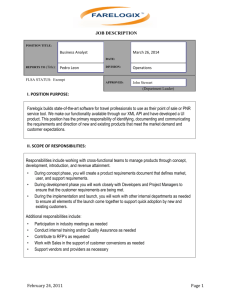Some common marketing terms
advertisement
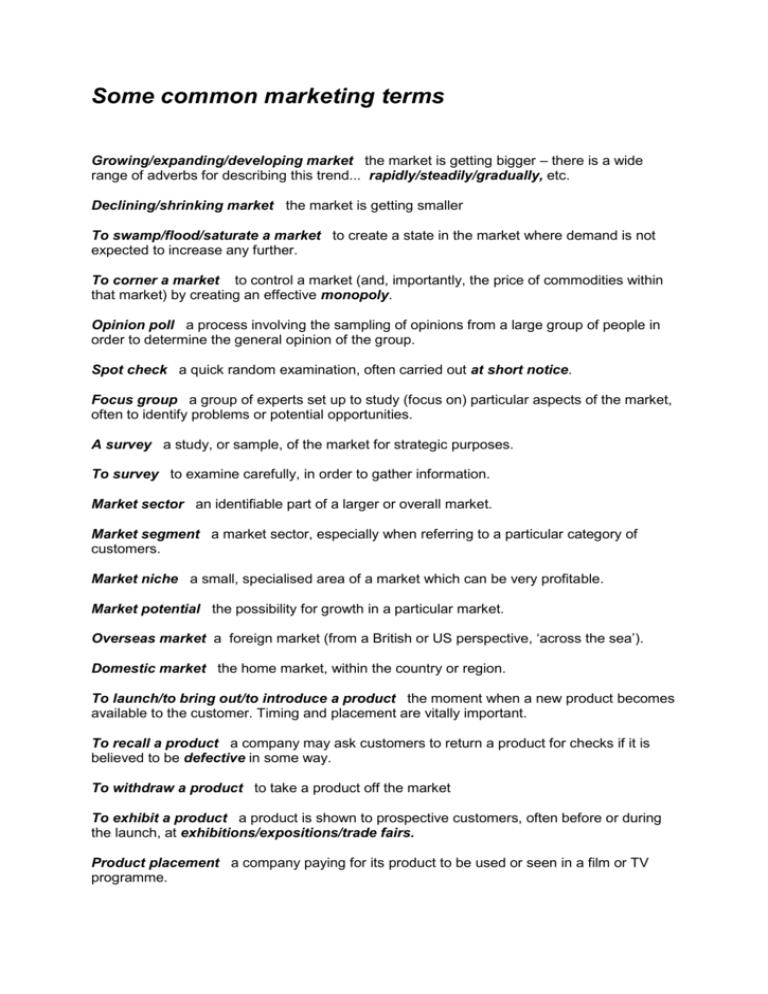
Some common marketing terms Growing/expanding/developing market the market is getting bigger – there is a wide range of adverbs for describing this trend... rapidly/steadily/gradually, etc. Declining/shrinking market the market is getting smaller To swamp/flood/saturate a market to create a state in the market where demand is not expected to increase any further. To corner a market to control a market (and, importantly, the price of commodities within that market) by creating an effective monopoly. Opinion poll a process involving the sampling of opinions from a large group of people in order to determine the general opinion of the group. Spot check a quick random examination, often carried out at short notice. Focus group a group of experts set up to study (focus on) particular aspects of the market, often to identify problems or potential opportunities. A survey a study, or sample, of the market for strategic purposes. To survey to examine carefully, in order to gather information. Market sector an identifiable part of a larger or overall market. Market segment a market sector, especially when referring to a particular category of customers. Market niche a small, specialised area of a market which can be very profitable. Market potential the possibility for growth in a particular market. Overseas market a foreign market (from a British or US perspective, ‘across the sea’). Domestic market the home market, within the country or region. To launch/to bring out/to introduce a product the moment when a new product becomes available to the customer. Timing and placement are vitally important. To recall a product a company may ask customers to return a product for checks if it is believed to be defective in some way. To withdraw a product to take a product off the market To exhibit a product a product is shown to prospective customers, often before or during the launch, at exhibitions/expositions/trade fairs. Product placement a company paying for its product to be used or seen in a film or TV programme. Product positioning the way a product is designed to be perceived in relation to other products. Product lifecycle the life of a product considered in terms of the phases from its development and launch to its withdrawal. Product line/range/portfolio the products that a company has to offer, considered as a group. A sluggish market a slow-moving market, where interest in the products is low. A stable market a market which is not susceptible to sudden, erratic changes A volatile market a dynamic, rapidly changing market which is difficult to predict. End user the final customer, the person for which the product is ultimately designed. Retail outlet the place where goods are sold to customers, eg. A shop (US:store). Point of sale the time and place at which a sales transaction takes place. Selling point a unique or interesting aspect of a product which attracts customers. Discount a deduction in the original selling price. Special offer a price reduction as part of a campaign to stimulate sales. Wholesaler/distributor/intermediary sells goods in large quantities to retailers, and buys in even larger quantities directly from the manufacturer. Customers are individuals or organisations who buy from shops or other organisations. Consumers are individuals who buy things, especially when considered as members of large groups of such people. Clients are individuals or organisations who pay for services provided by a professional person or organisation.

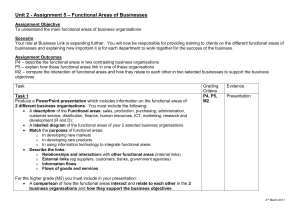
![1[7. MINISTRY OF PRIMARY AND MASS EDUCATION] 1](http://s3.studylib.net/store/data/008790481_1-dc16bd6475807709cfe43fd7dc8fd0e5-300x300.png)
